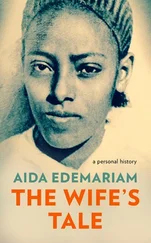For the moment, in Colonel Wellesley’s sustained opinion, the best interests of British India lay in not provoking Tippu Sultan. ‘Nothing,’ the Colonel proposed, ‘should be demanded of him [which was] not an object of immediate consequence’; and it was his advice that the demand should, for the moment, be limited to his receiving a British ambassador in his capital of Seringapatam. 9In the meantime Colonel Wellesley continued to do his best to ensure that, were force found to be necessary, the means at the Governor-General’s disposal would be adequate to the task. The work was peculiarly frustrating: there were so many officers and Company officials whose inefficiency was an almost constant exasperation. Commissaries were in general ‘a parcel of blockheads’; two particular officers of the Company were worse than useless, one of them ‘so stupid’ that he was unfit for the simplest tasks, the other ‘such a rascal’ that he had to be watched all the time; neither of them understood ‘one syllable of the language’. 10The Colonel experienced as much difficulty in getting the siege-train moved nearer to the frontier between Mysore and the Madras Presidency as he did in having supplies placed in depots along the planned route of the army’s proposed march.
Exasperated as he was by inefficient subordinates, the Colonel was further troubled by the scandalous quarrelling of regimental officers, one of these quarrels resulting in a duel in which Colonel Henry Harvey Aston of the 12th was mortally wounded. There had followed a court of enquiry which had occupied hour upon hour of Colonel Wellesley’s time and kept him at work far into the night. 11
The General who was to command the army which Wellesley was so conscientiously helping to prepare for action was Lieutenant-General George Harris, a parson’s son who had trained as an artilleryman and had fought with distinction in the war in America where he had been wounded more than once. He was a good-natured man of no remarkable talents but deemed perfectly capable of conquering Mysore.
That Mysore must, indeed, be conquered was decided towards the end of 1798 after a lengthy, convoluted and entirely unsatisfactory correspondence between the Governor-General and the Sultan had merely widened the breach between the two men and failed to settle the question as to whether or not a representative of the King of England would be accepted in Seringapatam.
In General Harris’s army of some 50,000 men Colonel Wellesley was given a large command. As well as his own 33rd he was to have six battalions of the East India Company’s troops, four ‘rapscallion battalions’ of the army of Britain’s ally, the Nizam Ali of Hyderabad, which were accompanied by no fewer than 120,000 bullocks, and ‘about 10,000 (which they called 25,000) cavalry of all nations, some good and some bad, and twenty-six pieces of cannon’. 12Wellesley was soon to decide it was, all in all, ‘a strong, a healthy and a brave army with plenty of stores, guns, etc.’, but he did not want the staff at Fort William in Calcutta to suppose victory was a foregone conclusion. They must be prepared for a failure; it was ‘better to see and to communicate the difficulties and dangers of the enterprise, and to endeavour to overcome them, than to be blind to everything but success till the moment of difficulty comes, and then to despond’. 13
He was somewhat despondent himself, not having felt very well of late in Madras and soon to be pulled down by another attack of dysentery. He was also rather short tempered: when his brother the Governor-General asked him whether he should join the expeditionary force himself, he responded curtly, ‘All I can say upon the subject is, that if I were in General Harris’s situation, and you joined the army, I should quit it.’ 14
The Colonel was still feeling unwell when, on a moonless night on the outskirts of Seringapatam, the column which he was commanding entered a dense thicket of bamboos and betel palm where they came under heavy fire in the darkness. The men fled in all directions, stumbling into irrigation ditches, shouting to each other across the thick undergrowth as rockets exploded around them and musket balls whistled through the foliage. Several of them were captured, some later killed by strangulation or by having nails driven into their skulls. The Colonel, hit on the knee by a spent musket ball, unable to see anything in the blackness of the night, and despairing of the possibility of reforming the column, limped away to report the disaster in the camp where the fires were still flickering at midnight. 15
Some officers, disliking what they took to be Colonel Wellesley’s bumptious arrogance and jealous of his close relationship with the Governor-General, were not sorry to learn of his failure. His second-in-command was one of them. Captain Elers, in a book published after he had fallen out with Wellesley, reported that, having gone to make a report to General Harris, he was turned away at the tent by a servant who told him that ‘General Sahib had gone to sleep’. ‘Overcome with despair and in a state of distraction, Colonel Wellesley threw himself, with all his clothes on, on the table (at which a few hours before he had dined), awaiting the dawn of day.’ 16In fact, so General Harris noted in his journal, at about midnight Colonel Wellesley came to his tent ‘in a good deal of agitation to say he had not carried the tope [thicket]. It must be particularly unpleasant to him.’ 17
It undoubtedly was so. Ashamed of a failure that he was to remember for the rest of his life, he bitterly blamed himself for entering the thicket in darkness without reconnoitring it first. He told his brother Richard that he was determined never to make such a mistake again. ‘Had Colonel Wellesley been an obscure officer of fortune,’ commented Captain Elers, ‘he would have been brought to a court-martial and perhaps received such a reprimand for bad management as might have induced him in disgust to have resigned His Majesty’s service.’ 18
The next morning when the advance to Seringapatam was resumed Colonel Wellesley was late in starting off because of a message which failed to reach him. General Harris, accordingly, told another officer to lead the attack instead. This officer was Major-General David Baird, a tough, blunt Scotsman, twelve years Wellesley’s senior. He had never been an even-tempered man. As a young captain in the 73rd Highlanders on a previous campaign he had been wounded, taken prisoner and held captive by Tippu Sultan for three years and eight months; and, with the bullet still in his wound, he had been chained to a fellow prisoner. When the news reached his mother in Scotland that her son was treated in this way, she acknowledged the fact of his savage temper in an observation of maternal percipience. ‘God help,’ she said, ‘the puir child chained to our Davie.’ 19
Age had not mellowed him. ‘He is,’ one of his officers declared, ‘a bloody old bad tempered Scotchman.’ He had no reason to regard Colonel Wellesley with benevolence. He considered that he should have been offered the command of the expedition to Manila which it had seemed likely at one time would be given to the far junior Colonel the Hon. Arthur Wesley; he also thought that he should have been given command of the Nizam of Hyderabad’s troops which had been assigned instead to the well-connected young Colonel and, in his disappointment, he had unwisely sent General Harris ‘a strong remonstrance’. Even so, according to his biographer, he demurred when the offer of superseding Wellesley was made to him. ‘Don’t you think, Sir,’ he said to Harris, ‘it would be but fair to give Wellesley an opportunity of retrieving the misfortune of last night.’* 20
So Colonel Wellesley was given his chance; and over the next few days, his knee less painful, he made amends for the débâcle of that miserable night. Having driven the Sultan’s men from the wood, he successfully attacked one of Seringapatam’s defensive works, as the army settled down to the formalities of a siege. He was not, however, to lead the final assault, for this duty was assigned to General Baird so that he might take revenge for the privations and ignominy of his long captivity. Waving his sword and shouting, ‘Forward, my lads, my brave fellows, follow me and prove yourselves worthy of the name of British soldiers!’, he led his men over the walls and into Seringapatam where Tippu Sultan – having put to death as oblations various animals, including two buffaloes, a goat, a bullock and an elephant, as well as, so it was said, various women of his court – was found dead, shot through the temple. 21
Читать дальше











